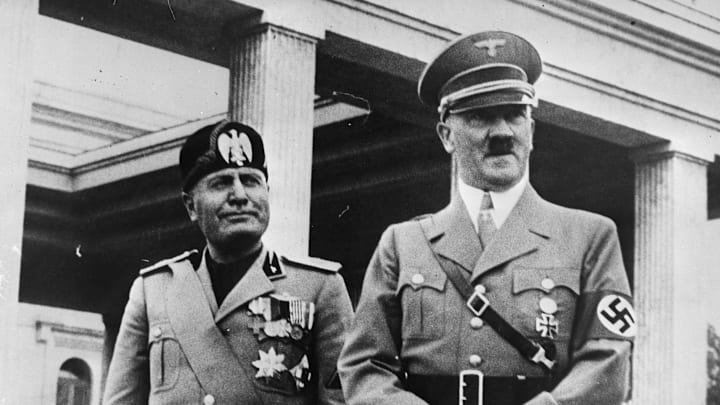Positive view of violence, particularly when used by the military or private militias
People often associate fascist regimes with overt, physical violence, and there's a reason for that. It's not that violence is necessarily directed by the state as much as it is a cultural shift of seeing violence as a positive way to handle tension. Three of Umberto Eco's 14 key points are connected with this idea.
From Eco's perspective, fascism promotes "action for action’s sake," the idea that "life is lived for struggle," and a desire to fight and die a "heroic death." By instilling these cultural mindsets, fascist governments can whip their followers into a frenzy of anger and fear, trusting that violence will follow without them having to order it.
This also justifies using the military against enemies, because it is just a more official version of what has already been accepted. If the German people, for instance, already kicked the Jewish people out of their communities, then nobody would have protested when they were taken away altogether. If violence is necessary to complete the task, it's hardly more in the moment than what the citizens might have performed themselves.
From an ideological standpoint, it happens in two phases. While there is still vocal dissent, violence is used as a way to silence opponents. Per Arendt, "organized violence is the most efficient of the many protective walls which surround its fictitious world, whose 'reality' is proved when a member fears leaving the movement more than he fears the consequences of his complicity in illegal actions, and feels more secure as a member than as an opponent."
That way, the biggest troublemakers are gone, and those with even a spark of disagreement will hesitate to voice it. From there, violence is a tool of reinforcement, which can "realize constantly its ideological doctrines and its practical lies." Practicing violence contributes to the positive social outlook on it, gives ordinary citizens an example of how they 'should' respond to the enemy, and puts the villainized population in a position where they must either be powerless or react violently themselves.
Economic claims directed toward the middle class
While violence was a large part of fascism, potential leaders also used democratic processes to get to a place where they could safely exercise that power. Rather than simply claiming the government with a military coup, many fascist leaders (including Mussolini and Hitler) had widespread popular support and benefitted from either themselves or their party being voted into power.
Those elections were not completely free, but that doesn't discount the fact that many people did vote for fascism. Most of the fascist regimes came out of the post-World War I period when much of Europe was struggling economically. But while the rich stayed rich and the poor stayed poor, the middle classes were easily manipulated on promises that they would no longer be victims to the fluctuations of national economies.
Umberto Eco and Emilio Gentile both recognize the role of the middle class here because they had the most potential for change. Many were well off enough that they were unbothered by the same issues the poor worried about, yet so far from wealthy that they were easily frustrated. This made them easy prey when the fascists claimed that the economy was struggling because of the socialists or the Jewish people.
Some fascists used capitalism and others used socialism, but either way, they claimed that the nation either currently was or was about to be in economic crisis, and that only their revolutionary way of thinking could stop it. Luis Britto García claimed that "the economic crisis, daughter of capitalism, is the mother of fascism." It is both the breeding ground for fascist ideologies and the threat that most easily drives people to vote fascists into power.
